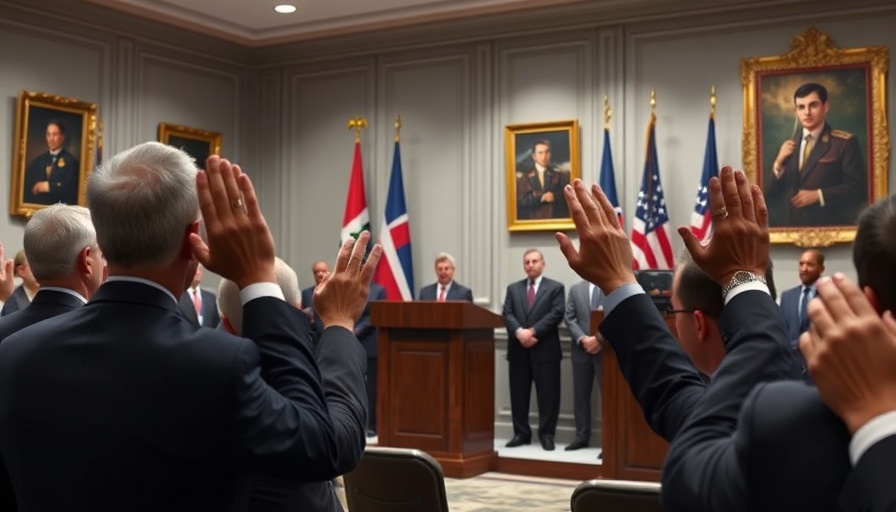
The Shift in AI's Regulatory Landscape
As President Trump has taken office, a profound shift in the AI sector's stance toward regulation has emerged. A stark transformation has occurred in the attitude of technology leaders from a request for stringent oversight to an assertive demand for minimal regulations. In the past, prominent figures in AI, such as Sam Altman of OpenAI, voiced concerns about the potential risks of generative AI, highlighting fears of job displacement and national security threats. Now, with Trump emphasizing A.I. as America’s premier tool against competitors like China, firms have pivoted towards advocating for fewer constraints.
The Lobbying Surge: Companies Push for Fewer Regulations
In recent weeks, major players such as Meta, Google, and OpenAI have actively lobbied the Trump administration for a host of changes. From requesting the prohibition of state-level regulations to seeking absolutions for using copyrighted material in the development of their models, the demands have escalated. This push reflects a significant shift from being proactive in ensuring responsible AI, to a more aggressive stance focused on unleashing potential innovations without red tape.
AI's Role in National Strategy: The Race Against China
President Trump’s focus on artificial intelligence as a weapon in a technological arms race against China illustrates the changing narrative surrounding AI in the political context. He has reinforced the belief that speed in AI development is vital for ensuring national dominance. This rhetoric not only supports fewer regulations but also translates to bigger budgets and incentives for companies developing AI technology.
The Implications of Reduced Regulation
While the call for fewer regulations may invigorate innovation, it raises substantial concerns. Critics argue that diminishing oversight could lead to increased risks associated with AI technologies, such as biased algorithms that could exacerbate inequalities or privacy violations resulting from broad data usage. The challenge lies in finding a balance between fostering innovation and establishing safeguards that protect societal interests.
Questions to Consider for the Future of AI
As the AI landscape reshapes under the influence of fewer regulations, several questions emerge: How will this impact the workforce as AI technologies continue to evolve? Will there be a proportionate response to the ethical concerns surrounding AI's integration into daily life? And how will public perception of AI change as these technologies become further entrenched in societal infrastructure?
Conclusion: The Path Forward for AI Enthusiasts
For AI enthusiasts, this moment represents both an opportunity and a critical juncture. Engaging with the implications of these regulatory shifts is vital for understanding how AI technology will evolve and affect various sectors. As the dialogue about responsible AI continues, staying informed and involved is imperative for those passionate about the future of artificial intelligence.
 Add Row
Add Row  Add
Add 




 Add Row
Add Row  Add
Add 

Write A Comment